The Importance of Creativity in Children's Education

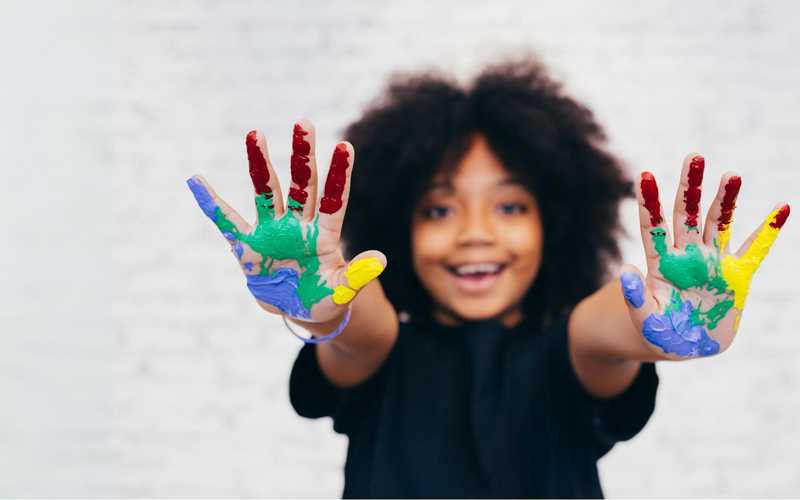
Many of us are guilty of focusing on logical skills when teaching children how to read, write and even interact with others. While these are needed in order for them to have a better understanding of the world, encouraging creativity can have a huge positive impact on your child’s development.
There are a multitude of benefits linked to inspiring creativity in young children. Here are some of them:
Mental health and self-confidence
Encouraging your child to be creative from a young age can have a significant impact on their mental health and well-being. Fun creative activities such as pretend play and storytelling can offer them some escapism from the real world, and can help young children process their feelings, thoughts, opinions and emotions in a more efficient and productive way.
When children engage in creative expression, they not only have fun but also subconsciously work on emotional development, which is essential for their own mental growth. Creating something from scratch or adding their own creative flair to something that already exists fosters a sense of pride and self-worth, which is a great way to teach your child about self-awareness, self-esteem and self-confidence.
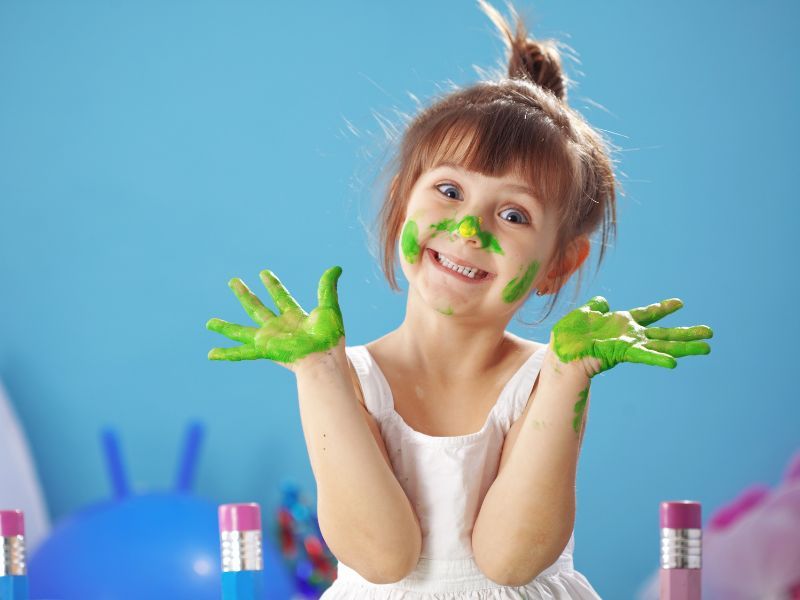
Problem-solving and critical thinking skills
When children face a problem, they tend to use their creative thinking skills to solve it. For instance, if two children want to play basketball but don't have a ball, they might think of using a crumpled piece of paper and an empty box as a makeshift ball and hoop. In this scenario, they are not just finding a solution; they are actively using their problem-solving skills and critical thinking to create an entirely new way to play the game.
Creative thinking allows children to come up with different solutions to a problem, improving their critical thinking skills and brainstorming abilities. Additionally, creativity helps children become more adaptive by teaching them to change their approach when facing obstacles. This flexibility in thinking is crucial for their development and will serve them well as they grow into more capable and resilient people.
Academic and cognitive skills
Creativity is more than an outlet for self-expression, as it can also boost children's academic and cognitive skills, laying a strong foundation for their future success. The creative process allows children to become better thinkers and learners, which can lead to improved performance in key areas like reading and writing. For example, when children participate in creative writing activities, they use their imagination and think outside the box, making the learning process more enjoyable and self-directed.
In early childhood education, fostering creativity has a huge impact on cognitive skills. Activities that promote creative thinking, such as problem-solving tasks and imaginative play, help children develop their memory and critical thinking. These skills are crucial for academic success and are foundational to quality education.
Young learners who have honed their creative abilities early on tend to exhibit better concentration, advanced language development, and better listening skills. These skills are essential for thriving in higher education.
By integrating creativity into children's education, we set them on a path towards achieving quality education and long-term academic success.
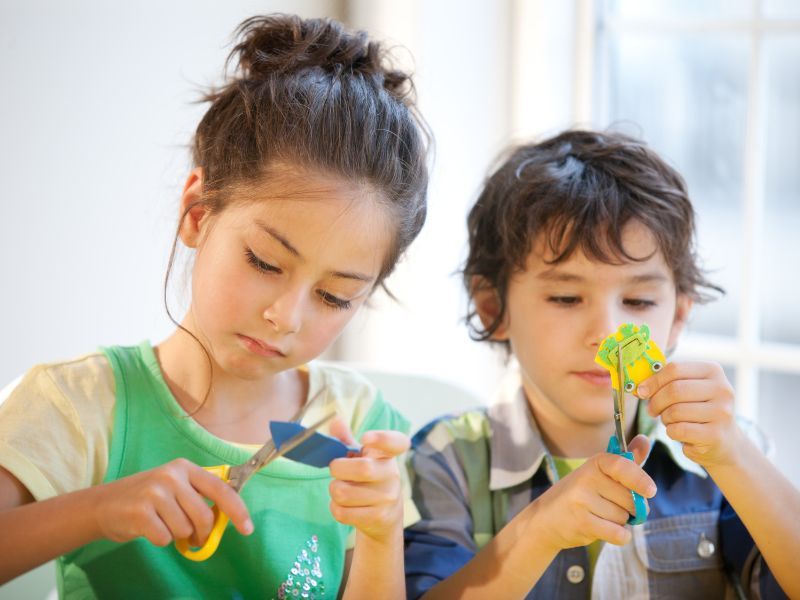
Motor skills
Creativity is not just about thinking outside the box; it also plays a significant role in boosting children's motor skills, which are a key part of their physical development. Engaging in hands-on creative activities can greatly improve fine motor skills. Art activities that involve manipulating materials, like molding playdough or painting with small brushes, are particularly effective for encouraging the development of these motor skills. Shaping playdough into different forms or painting requires children to use their hands in coordinated ways, improving their dexterity and hand-eye coordination.
These fine motor skills are crucial for child development, as they lay the foundation for more complex tasks such as writing, buttoning clothes, and using utensils.
Communication skills
Creativity is not only a gateway to imaginative play but also a powerful tool for boosting children's communication skills. When children engage in creative activities, whether it's storytelling, role-playing, or collaborative art projects, they naturally develop their social skills. These activities encourage them to express their ideas, listen to others and work together, which are essential parts of effective communication. By integrating creativity into their daily routines, children in their early years learn how to show their thoughts and feelings more clearly, laying a strong foundation for their communication abilities as they grow.
In early childhood, creative activities are particularly beneficial for helping children make sense of their surroundings and interact with others. Through imaginative play, for example, children experiment with different roles and scenarios, which helps them get a better understanding of the world and how they fit into it. This in turn inspires them to ask questions, share their perspectives and even build a broader vocabulary!
How to boost creativity
If you’re looking for ways to spark your child's creativity, there are plenty of simple yet effective strategies you can incorporate into their daily routine!
Encouraging creative play at home or in a homeschooling environment is one of the most powerful ways to boost your child’s creativity. Start by creating a fun and supportive environment filled with different materials that inspire imaginative play. Whether it’s a variety of art supplies like crayons, markers, and paper, or building blocks and costumes for pretend play, having these readily available allows young children to express their ideas freely and creatively.
Role-play is an effective way to boost children's creativity. For example, setting up a “restaurant” at home where your child can be the chef or server not only makes playtime more engaging but also helps them develop their storytelling and problem-solving skills. Pretend play scenarios like this allow children to step into different roles and explore new ideas, all while having fun!
Reading is another powerful tool for inspiring your child to be creative and encourage them to use their imagination. When children read, they’re introduced to new worlds, characters, and ideas that can inspire their own imaginative play. Encourage them to create their own stories based on what they’ve read, or ask them to draw pictures of their favorite settings or characters. This not only reinforces what they’ve learned but also allows them to explore different ways to express their thoughts and ideas creatively.
By integrating these creative experiences into your child’s routine, you’re helping them develop a strong foundation for creative thinking that will benefit their academic success and beyond!
How Night Zookeeper can help

One of the most effective ways to boost creativity while ensuring that your child is also getting the academic support they need is by using an educational program.
Night Zookeeper is a reading & writing program for children aged 6 to 12 that puts creativity at the forefront of education. It transforms reading & writing into a game that encourages children’s imaginations by letting them learn through play and encouraging them to build their on Night Zoo by completing lessons, challenges and games. This gamified approach makes learning fantastically fun, engaging and entertaining.
Sign up today and get a FREE 7-day trial!
Got any questions? Email us at [email protected]. Follow us on social media for more advice, updates and freebies:


Make Reading & Writing Fantastically Fun!
- Award-winning reading & writing program for kids
- Improves spelling, grammar, punctuation & vocabulary
- Over 1,000 different learning games and activities
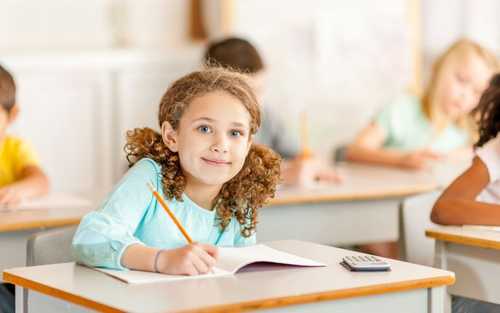

25 Creative Writing Prompts for Kids
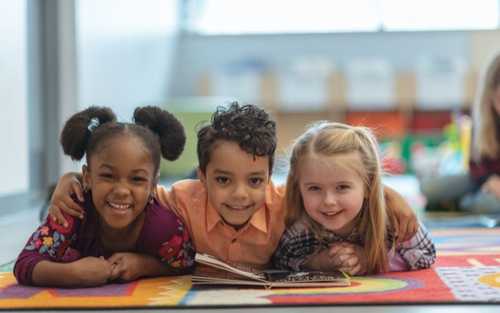

How Creative Writing Improves Children's Wellbeing
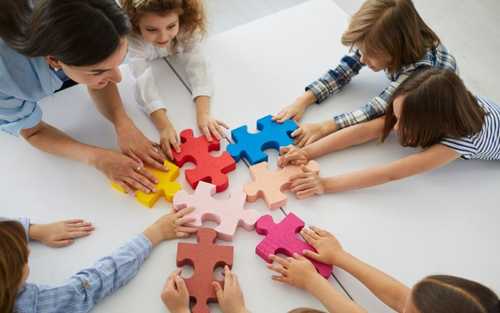

Creative Games For Kids


